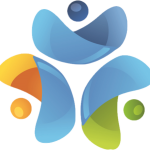 ASAM & Patient Placement Criteria
ASAM & Patient Placement Criteria
Discuss the Underlying Concepts and Multidimensional assessment process with patient placement criteria.
- Acute Intoxication and/or Withdrawal Potential
- Biomedical conditions and complications
- Emotional/Behavioral/Cognitive conditions and complications
- Readiness to Change
- Relapse/Continued Use/Continued Problem potential
- Recovery Environment
 Advanced Counseling
Advanced Counseling
Examine advanced counseling concepts and counseling principles; discuss the ongoing importance of counselor professional development and counselor
Competence. Discuss the differences in individual Counseling and the individual therapy processes. Discuss the dynamics of eclecticism.
 Clinical Supervision
Clinical Supervision
This course will address some of the key issues surrounding clinical supervision, such as administrative, educational, and supportive functions in interaction with the supervisee in the context of a positive relationships. The course will also address the importance of clinical supervisors being able to make sure agency clients receive the best possible service, both quantitatively and qualitatively, in accordance with agency policies and procedures.
 Co-Occurring Disorders
Co-Occurring Disorders
The primary function of this training is to prepare Addiction Counselors and other participants on how to work with clients with co-occurring disorders. Also the training will address evidence-based knowledge and state of-the-art information and approaches to the treatment of persons with co-occurring substance use and mental disorders.
 Counselor Self-Care
Counselor Self-Care
This course is designed to remind helping professionals the importance of compassion fatigue and burnout and that they are givens in therapeutic work, rather than indicators of personal inadequacy. Also the course will help counselors to recognize and respond effectively when they experience the impact of these stressors. Therapists and counselors are able to see what clients need to do care for themselves, but at times become blind to their own needs to do the same. Self-care needs to be viewed as a moral imperative and be included in all training and on-going professional development programs.
 Cultural Competency
Cultural Competency
The purpose of this training is to educate and discuss the variations in substance abuse patterns among different cultural groups. In addition, the importance and provision of culturally competent substance abuse and mental health services no longer being an option, but a necessity, in order for treatment to be effective.
 Ethics, Confidentiality & Law
Ethics, Confidentiality & Law
This training course is designed to allow participants to become familiar with issues and ethics in the helping professions. Participants will be provided with a framework and a direction for working through ethical dilemmas. Also the course will discuss the differences and correlation surrounding ethics and law.
 Group Counseling Techniques
Group Counseling Techniques
This course will introduce the various dynamics of group process and examine group stages. Group therapy is commonly used in addiction treatment because it offers interpersonal learning, a community of support, is cost effective and has proven to be an effective method with clients’ who suffers from addictions. Group counseling allows clients to learn about themselves interpersonally through interaction with other group members. Group counseling is a popular preferred treatment approach with the addicted population.
 Motivational Interviewing
Motivational Interviewing
This training course will discuss the basics of the motivational interviewing counseling process. The course will examine the importance of counselors understanding the dynamics of MI and building on client current strengths, rolling with normal resistance and utilizing client discrepancies as a strategy. The training will place emphasis on MI being a collaborative, goal-orientated style of communication with particular attention to the language of change, designed to strengthen personal motivation for and commitment to a specific goal by eliciting and exploring the person’s own reasons for change within an atmosphere of acceptance and compassion.
 Person-Centered Treatment Planning
Person-Centered Treatment Planning
This course will address the basics of treatment planning. The course will also examine the components of treatment planning such as goals, objectives and interventions. The course will also discuss person-centered counseling and treatment planning and the importance of the client having the major impact of the construction of the plan.
 Psychopharmacology
Psychopharmacology
This training is designed to allow participants to become familiar with the basics of psychopharmacology in addictions treatment. Participants will be provided with a general knowledge of the most commonly prescribed psychiatric medications. The term dual disorder or co-occurring disorder will be discussed. This training is a general introduction to the basics of psychopharmacology and the role medications play in assisting clients with mental health problems and addiction issues. It is important for practitioners at all levels to know that medications are only a tool that can help a person accomplish his or her goals.
 Signs & Symptoms of Substance Use
Signs & Symptoms of Substance Use
This training is designed to allow participants to become familiar with the basics of signs and symptoms of substance use. Participants will be provided with a general knowledge of societies different attitudes about substance use which can lead to different responses to substance abusers. This training will also give examples of the signs and symptoms users may experience WHILE under the influence of alcohol or another drug.
 Stages of Change
Stages of Change
This training is designed to educate substance use counselors and other participants on the stages of change in substance use treatment. Client resistance and counselor intervention will be reviewed within the model of change. The training will discuss the processes of pre-contemplation, contemplation, preparation, action and maintenance.
 Twelve Core Functions
Twelve Core Functions
The purpose of this training is to educate participates on the case presentation method and the Twelve Core Functions of ICRC. The training will also discuss and evaluate the core competencies and functions involved in the counseling process. The training will examine the necessity of counselors having to retain the knowledge and demonstrate competency with counseling principles.
 Twelve Step Recovery Process
Twelve Step Recovery Process
An overview of the twelve steps will be reviewed and discussed. The training will also review a breakdown of the twelve step process and examine the twelve primary principles that accompany the twelve steps. This training will also address the importance of self-help meetings within the recovery process.
 Trauma/PTSD
Trauma/PTSD
The training course will discuss Posttraumatic conditions and examine how they often develop in the aftermath of ongoing increasing trauma, particularly severe child abuse and neglect. The training will also provide clinicians with a better understanding of the nature, diagnosis, and treatment of these conditions based on recent clinical writings and experimental findings.